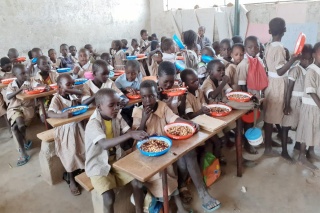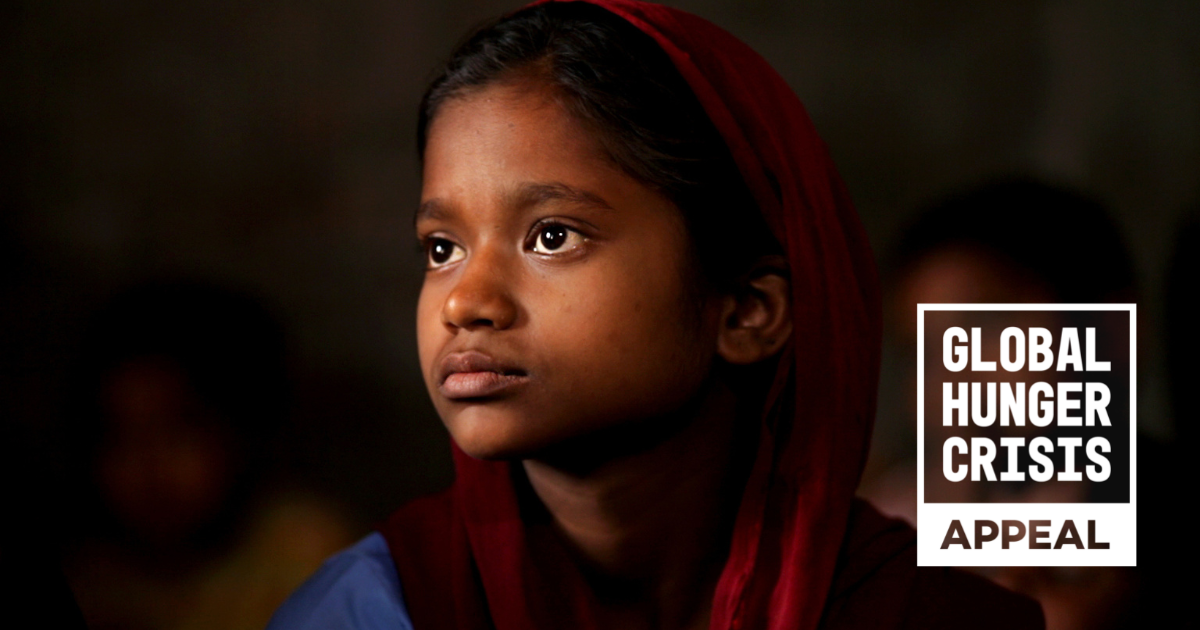

Walking Towards Hope
The situation has worsened in East Africa, and it’s caused by a terrible combination of factors.
Climate
In Kenya for example, there is a drought. Since many people rely on farming, this means they cannot produce anything to sustain their own families or to sell on for income. You can see how the burden gets bigger for the family, and for the community around. This is especially the case for nomadic and pastoral communities like the ones that we are supporting in Kenya. Animals are their livelihood, and a lot of animals are dying because of the drought.
Communities who would have moved from one place to another in the hope that things will get better have now reached the point where every place they move to is dry. They keep moving with their children and their families, but they are no longer able to provide something as basic as food. The most vulnerable households cannot meet their own most basic needs, so they won’t even have one meal to eat in a day. We see this and we know that without food, when people are starving, children face malnutrition. This causes so many other issues. When children are malnourished, they are more exposed to diseases. If this continues for a long time, without interventions, we will see more diseases affecting children in this region and children could die.
Conflict
In some areas with multiple pastoral communities, there is fighting over the commodities available. So, in addition to drought and the hunger situation, there is also insecurity. Insecurity is made worse by tribal clashes, and people fighting over grass and water. When conflict happens, it is the women and children who suffer the most because they are not in a position to protect themselves.
Across East Africa, in countries where there is ongoing conflict, everything is destroyed. In Ethiopia for example, people have found their homes being burned, their food being burned. When you become internally displaced, you become even more vulnerable. You do not have your source of income and livelihood anymore. You do not even have your home. You may not have anything, any resources to get food for your family, or clothing, or shelter. So, it makes people’s situation very hard.
In South Sudan, there are ongoing issues of security, war, conflict and tribal clashes.
In Kenya there are elections in August and they often bring chaos and fear. Beyond the political situation, there are food shortages, inflation, and lack of rain. We may not know how long these will go on for, but the combination of factors means the situation is getting worse. The intervention that Mary’s Meals is doing is so important.
It’s important because we’re essentially talking about the survival of these children. But it’s not just about survival: we want them to really thrive and to stay in school and get an education because that is what will give them hope for a better tomorrow.
Cost of living
Rising costs are quite a challenge. The situation now is much worse compared to a couple of years ago. Across the world, there is war going on, in Ukraine for example. Before, you would maybe see rising inflation in a few selected countries, but now it is a global issue. In every country, you can see people are saying that everything has become so expensive.
Incomes haven’t increased, so what families are getting right now when the crisis is ongoing is the same as what they got before the crisis started. So how do you manage when everything is so expensive, and you have the same income that you used to get maybe two or three years ago? It is a huge challenge. Are you able to provide the most basic needs for your children? They need food, education, shelter, clothing, medical care and so on. Are you able to provide everything that you used to?
Walking towards hope
This is why Mary’s Meals is so important. I am still relatively new to Mary's Meals, but the first time I visited a school, I saw that from something as simple as providing a daily meal in a place of education, you can look at these children and you see the hope that they have. They have hope that they will make it to tomorrow, and another day, and they’ll keep coming and they’ll keep getting the education that they need.
It is really, really important. You could go to the middle of a forest, there is nothing there and then you get this informal school, and you see children. There are 150 children, 250 children, some of them walking as far as 6km to be able to get to this place of education because they are walking towards hope. They are walking there every day because they have hope that when they go there, they will get a meal. They think to themselves, ‘if I stay here [at home] I might starve and die and I won’t get anything, I may not get a chance to live. But maybe I can have a future and have hope and get to be someone.’
Every day it could seem daunting and very difficult for a child to walk 6km but why do they keep doing it? It is the hope that they have, that ‘it might be a bit far and I’ll have to walk for some time, but when I get there, I will get a meal, and I’ll go back tomorrow and I'll get a meal then.’ It keeps them going and it really is wonderful. It's amazing to see them there. And they are smiling! I was like “My God, this is wonderful”.
Please help more children to walk towards hope with daily meals in school.

